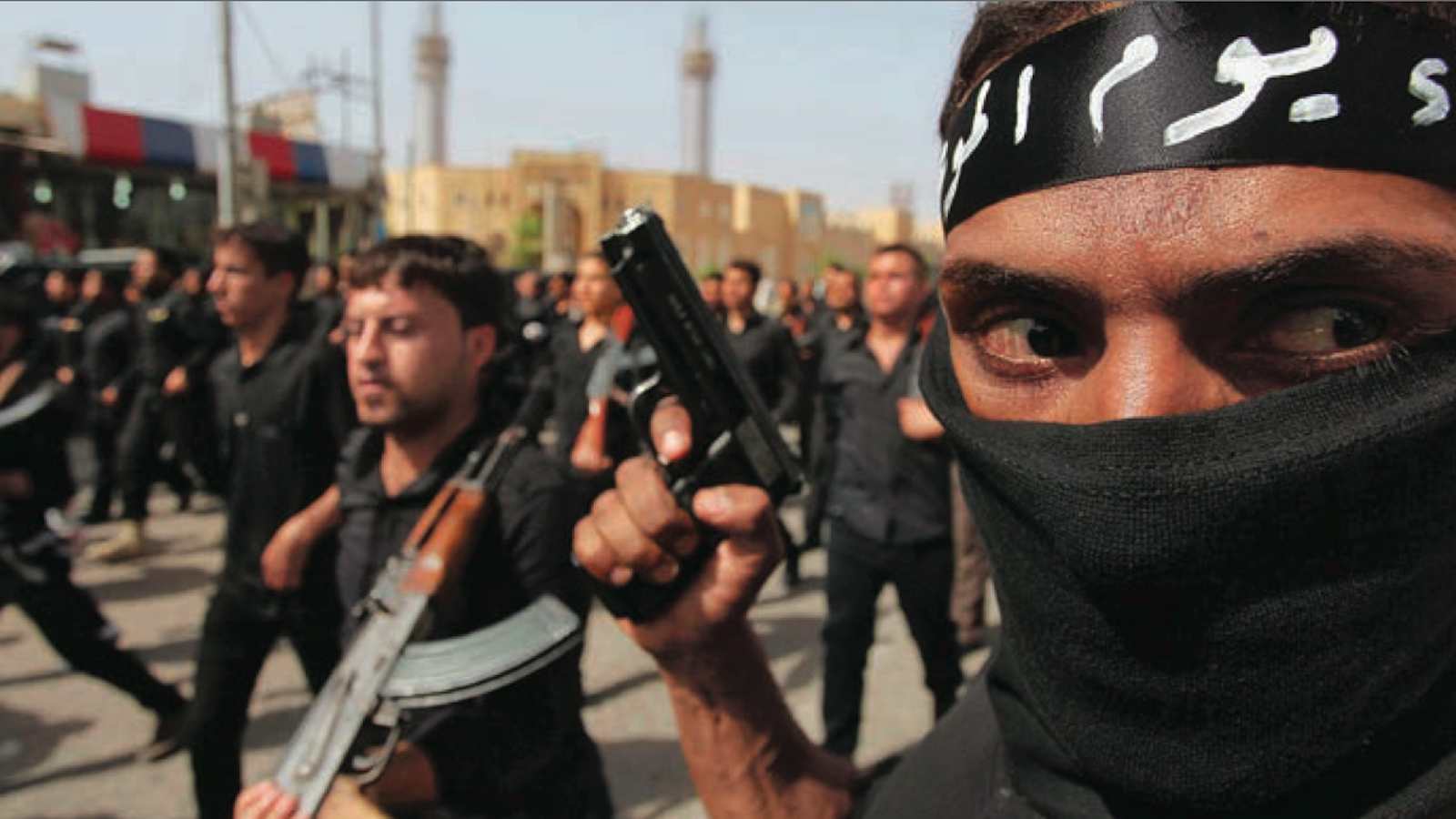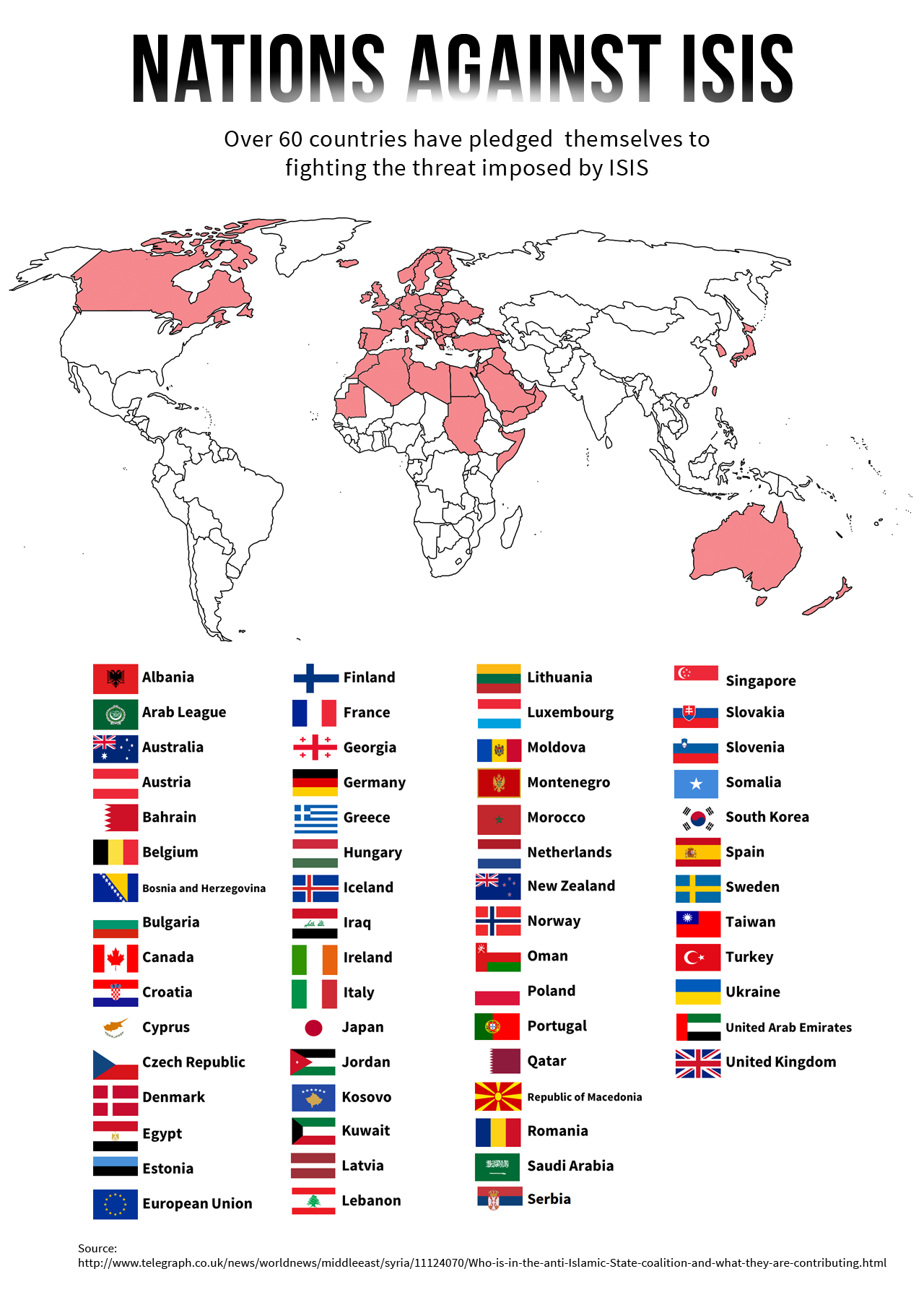BY MARIA NIÑA PAMELA CASTRO AND ROSE ANN SOLO
Early this year, the Middle East was tormented by mass executions, suicide bombings, security attacks — nightmares that plagued not only this region but also the entire world.
These core-shaking violations and assaults trace their roots back in 2006, when the Al-Qaeda group in Iraq headed by Abu Musab al-Zarqawi, the “caliph” of all Muslims as the group would call him, ventured into the use of mass executions in an attempt to ignite a sectarian war against the majority of the Shia community.
On Feb. 22, 2006, members of the Al-Qaeda in Iraq infiltrated the Al-Askari mosque in Samarra, one of the holiest Shi’ism sites. They planted bombs which destroyed the dome and killed 1,300, leading to the worst sectarian violence in the country’s history, International Business Times reported.
The killing of al-Zarqawi by American troops a few months after the bombing extinguished the spark and almost destroyed the group.
In the same year, the Al-Qaeda in Iraq was re-established by Abu Bakr al Baghdadi and was rebranded as what is now known as the militant group Islamic State in Iraq and Syria or ISIS.
Mission

ISIS aims to create an Islamic state stretching across the predominantly Sunni regions of Iraq and Syria, primarily by spreading the influence of Sharia law in the areas they control.
In achieving this goal, however, the group became a new threat.
According to a Human Rights Watch report, 600 Shia, Christian and Yazidi male prisoners were executed by the use of machine guns in the middle of the desert outside the northern Iraqi City of Mosul on June 10, 2014.
A day after the massacre, ISIS carried out a similar mass killing of 1,700 Shia troops in the city of Tikrit. Syrian Observatory for Human Rights reported that from Oct. 20 to Nov. 14 this year, 2,000 ISIS air raids killed 500 people in Syria.
The Islamic State also executed 100 of its own mercenaries who tried to flee from their headquarters in Raqqa last Dec. 20.
In addition, at least 58 people were killed by foreign recruits of ISIS in three suicide bombings in Iraq’s Diyala province on Oct. 13, according to an Associated Press report. Two days after the incident, ISIS bombed the Hit, the third largest army base in western Iraq.
Independent Press also reported that the group conducted a suicide bombing in Kurdish on Nov. 19 that wounded 22 people and killed two policemen and two civilians. They also carried out a suicide bombing in the south of Baghdad on Dec. 26, killing 38 people and leaving 56 wounded.
Media war
Mass executions and suicide bombings were videotaped and uploaded online such as the beheading and death of American journalists James Foley and Steven Sotloff, which captured the attention of the global community and cyberspace.
The videos, which were uploaded on YouTube, warned the United States government of the catastrophic events that might happen if they continue to wage war against ISIS.
However, other non-western journalists have yet to be given the honor of being in the headlines, including Sada news agency’s Mosul correspondent Mohanad al-Aqid and a former presenter on the now-defunct Al-Mowseliya TV who is said to have been publicly shot in Al-Ghazlani camp on Oct. 13.
The same fate was experienced by Raad Mohamed al-Azaoui, an Iraqi cameraman and photographer for Sama Salah Aldeen TV who was publicly beheaded on Oct. 10 for refusing to cooperate with ISIS. The group wanted the media to pledge allegiance that they would not do any interview and send all reports for approval.
Chilling effect
Paris-based media watchdog Reporters Without Borders (RWB) said most local and regional TV stations have now stopped deploying journalists to ISIS-occupied territories, because many of their reporters have either been arrested, abducted, or personally threatened by the militant group.
RWB added that 17 Iraqi journalists have been killed in the past 10 months. ISIS has publicly threatened nine journalists by name, asking them to stop working and join ISIS, or face execution in Mosul and Salahuddin.
Aside from journalists and media workers, the group has also captured individuals they deemed as threats to their organization and territory, as well as those whom they accused of siding with United States forces against ISIS.
In September and October this year, British aid workers David Haines and Alan Henning were beheaded by ISIS. In a statement addressed to British Prime Minister David Cameron, the group said it would move for more destruction if Britain continues its “evil alliance with America.”
Counter-attack
Foreign superpowers have started to conduct measures to counter ISIS attacks. The US government has launched systematic airstrikes in Iraq and Syria and provided support for forces fighting ISIS on the ground. It has also utilized its counterterrorism capabilities to prevent further attacks, and provided humanitarian assistance to those affected by the crisis.
The American government will spearhead a coalition that aims to combat these attacks, US President Barack Obama said on Sept. 10.
“Our objective is clear: We will degrade, and ultimately destroy, ISIS through a comprehensive and sustained counterterrorism strategy,” he said.
Obama recognized Saudi Arabia, the United Arab Emirates, Bahrain and Qatar for partnering with the US. Late September, he urged the global community to cooperate with the US in defeating ISIS. He said it will take a broad coalition “to dismantle this network of death.”
Global response
However, US is not alone in fighting the unreasonable violence of the group.
On Sept. 24, members of the United Nations Security Council have unanimously approved and passed Resolution 2178, which underscored the need to prevent travel and funding of foreign terrorists.
The decision decides that countries, consistent with the international law, shall “prevent the recruiting, organizing, transporting or equipping of individuals who travel to a State other than their States of residence or nationality for the purpose of the perpetration, planning of, or participation in terrorist acts.”
In mid-October, Obama wrote a confidential letter to the Iranian Supreme Leader Ali Khamenei, discussing the emerging terrorism of ISIS, not just in the Middle East, but worldwide.
A month after, Bob Schieffer of CBS News asked Obama about the secret letter. “Our number one priority with respect to Iran is making sure they don’t get nuclear weapon”, Obama said.
He said there is no common battle plan between US and Iran, even though they are “focused on the same enemy.”
As of late September, the anti-ISIS coalition has mobilized up to 62 nations and groups, the National Post reported.
On the other hand, groups such as the Pakistani branch of the Taliban and al Qaeda in Yemen have issued formal statements allying themselves with ISIS. Meanwhile, in Libya, two extremist brigades held rallies with ISIS flags on the Muslim holiday of Eid al-Adha, the International Business Times reported.
American troops and ISIS had its first battle on ground last Dec. 17, when ISIS launched a surprise attack on Ein al-Asad base in Iraq where more than 100 US military support troops are based. The two-hour firefight ended when US troops were supported by F18 fighter jets, forcing ISIS to retreat after suffering casualties.
Despite the incident, Obama made no mention about the issue during his final press conference for 2014 on Dec. 19.
Meanwhile, in his Christmas greetings, Pope Francis condemned ISIS’ “brutal persecution.”
In the words of the Soufan Group, a New York-based global security intelligence consultancy, ISIS has become indisputably the “most effective and ruthless terrorist organization in the world,” having attracted significant numbers of fighters in various Arab states.
“It will never be a surprise if they also challenge the authority of other states across the globe in the near future,” the group said.
